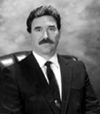 | Ed Clausen M.A
M.A. Audiologist, CCC-A is a licensed Audiologist under the Kansas Department of Health and Environment. He received his CCC-A in 1994 and serves as Company Audiologist for the 18 company offices of Midwest Hearing Aids, Inc. in Kansas. He holds memberships in the American Speech/Language and Hearing Association, the Kansas Speech/Language and Hearing Association, and the Kansas Hearing Aid Association. You may contact Ed at Midwest Hearing Aids corporate office in Wichita at 1 (800) 668-4055 or locally at (316) 264-2411. |
Audiology
2002-08-01 11:55:00
Stop the ‘ringing’ in my ears
: How can I get help for ringing in my ear?
Ed Clausen
Question: How can I get help for ringing in my ear?Answer: First, let's go over some background. Ringing in the ear, or tinnitus, is a common condition that affects millions of Americans. It very frequently accompanies hearing loss; although one is not caused by the other. People suffer from tinnitus in varying degrees, from simply hearing a little ringing in their ears at night to truly suffering from a debilitating condition; these individuals sometimes cannot hold down jobs or function normally. Tinnitus can be heard as a ringing, buzzing, roaring, hissing, or sounding like crickets. Finally, tinnitus can have many causes: exposure to loud sounds either in one instance or over time, taking medication that can be harmful to the ear (this includes some chemotherapy drugs, antibiotics, or diuretic); or middle or inner ear diseases. However, many cases of tinnitus are caused by factors that are unknown.Although there is no cure, there are many potential treatments for tinnitus. First, if you are having other symptoms along with your tinnitus such as dizziness, sudden hearing loss, pain in the ear, changes in mental status, or changes in coordination, you should definitely see an ear, nose, and throat physician. Even if you don't have these other symptoms, it would be a good idea to consult a doctor to eliminate causes such as wax in the ear or a middle ear infection. If disease has been ruled out by a medical professional, there are some things you can try to ease the tinnitus. Different people have different degrees of success with these treatments. In the cases where hearing loss accompanies tinnitus, hearing aids frequently help a great deal. A treatment that has been applied for years in cases where there is no hearing loss is the fitting of tinnitus maskers. These devices look like hearing aids but do not amplify sound; instead, they produce a static-like noise that helps mask the tinnitus sound. Reducing the intake of caffeine has helped some individuals manage their tinnitus. If you are bothered by your tinnitus mostly at night, then tuning a radio in between stations to static at a low volume sometimes helps mask the sound. Some individuals have found relief in acupuncture, biofeedback, or herbal remedies. If you are under the care of a doctor, prescription medications sometimes help. If you want to learn more, the American Tinnitus Association is a good resource


